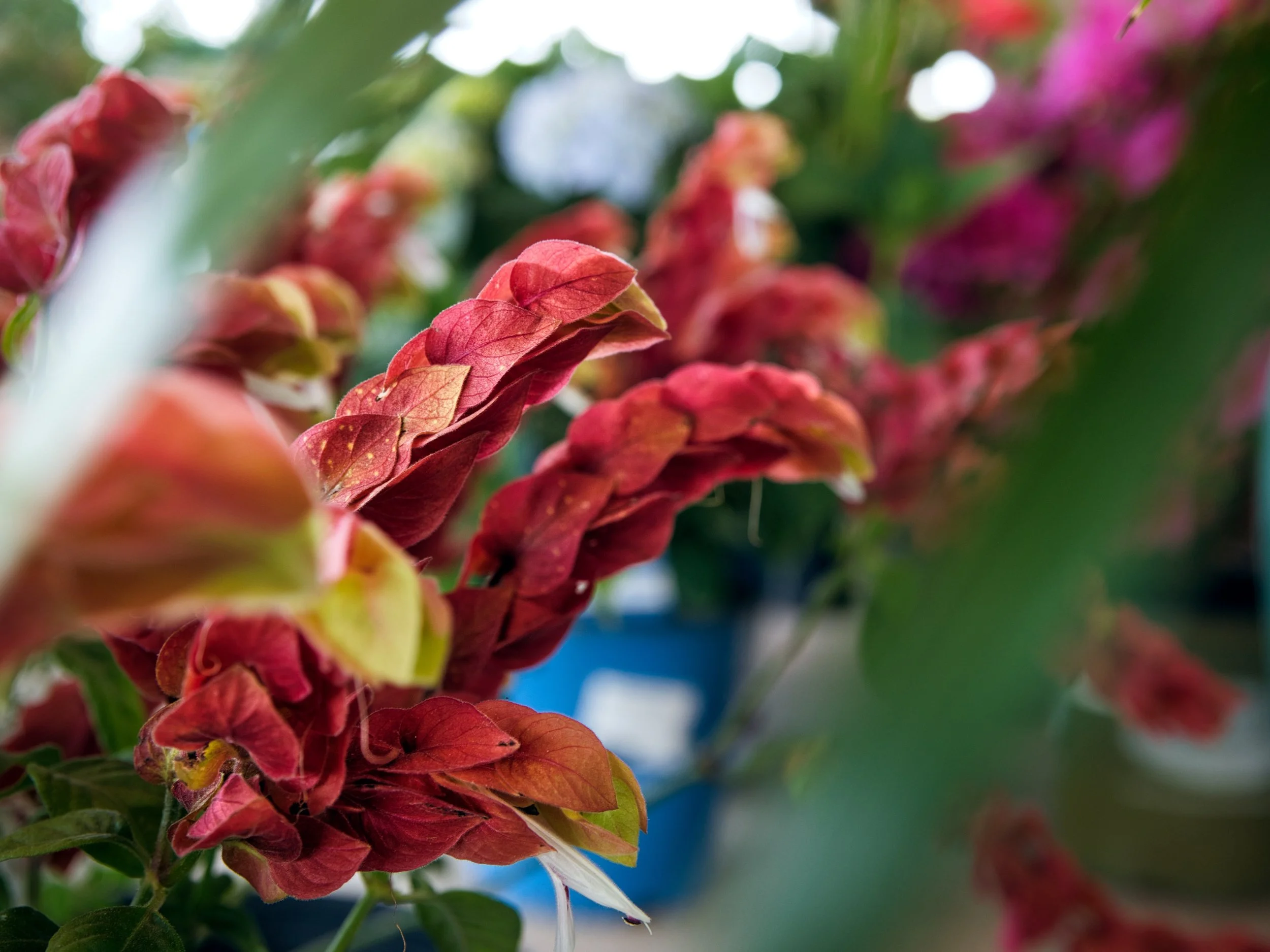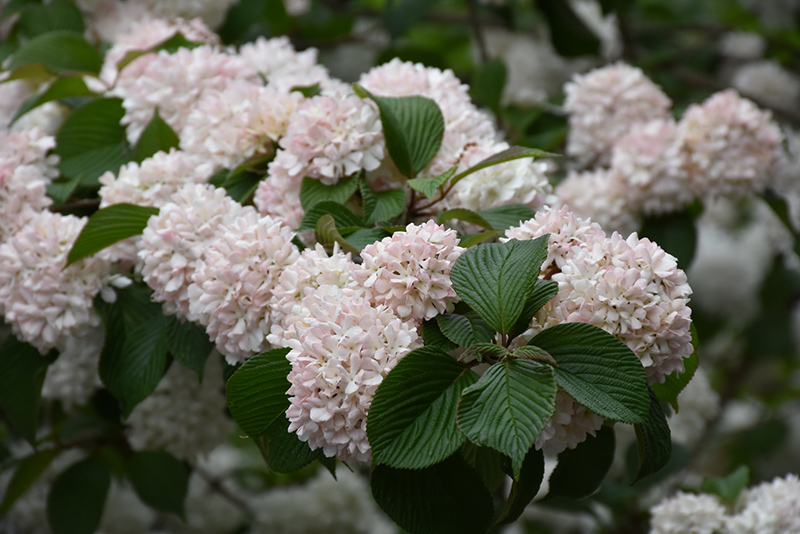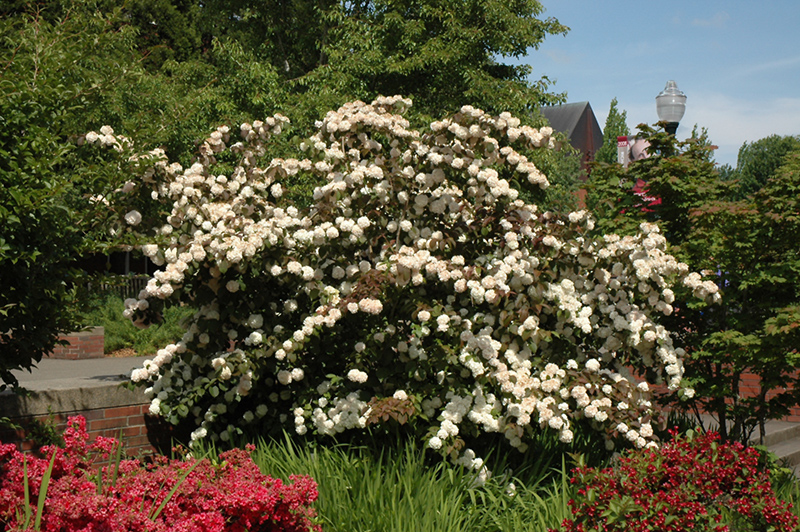Kern's Pink Snowball Viburnum
Viburnum plicatum 'Kern's Pink'
Height: 8 feet
Spread: 7 feet
Sunlight:
![]()
![]()
Hardiness Zone: 5a
Description:
A shrub with huge ball-shaped flowers ranging in color from pink to white in spring, showy almost beyond words, flowers are sterile so the shrub does not produce fruit; compact size, bronze-tinted foliage; a fine specimen plant; best pruning May-July
Ornamental Features
Kern's Pink Snowball Viburnum features showy balls of pink flowers with white overtones at the ends of the branches in mid spring. It has attractive deep purple-tipped dark green foliage. The serrated pointy leaves are highly ornamental and turn an outstanding orange in the fall.
Landscape Attributes
Kern's Pink Snowball Viburnum is a multi-stemmed deciduous shrub with a more or less rounded form. Its average texture blends into the landscape, but can be balanced by one or two finer or coarser trees or shrubs for an effective composition.
This is a relatively low maintenance shrub, and should only be pruned after flowering to avoid removing any of the current season's flowers. Deer don't particularly care for this plant and will usually leave it alone in favor of tastier treats. It has no significant negative characteristics.
Kern's Pink Snowball Viburnum is recommended for the following landscape applications;
- Accent
- Mass Planting
- Hedges/Screening
- General Garden Use
Planting & Growing
Kern's Pink Snowball Viburnum will grow to be about 8 feet tall at maturity, with a spread of 7 feet. It has a low canopy with a typical clearance of 1 foot from the ground, and is suitable for planting under power lines. It grows at a medium rate, and under ideal conditions can be expected to live for 40 years or more.
This shrub does best in full sun to partial shade. It does best in average to evenly moist conditions, but will not tolerate standing water. It is not particular as to soil type or pH. It is highly tolerant of urban pollution and will even thrive in inner city environments. This is a selected variety of a species not originally from North America.



